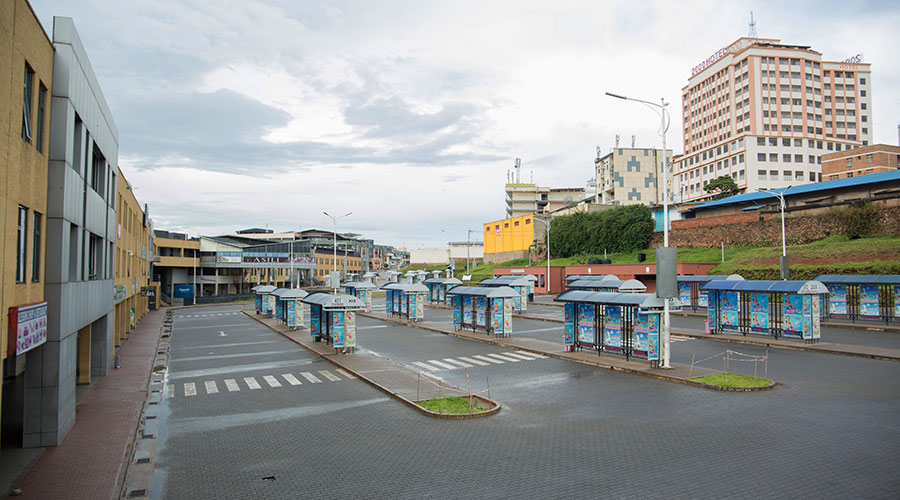

I cannot believe that a year has gone by and we are still in this pandemic. To be honest, when I heard about the SARS - COV2 for the first time early last year, I did not think that it would get this worse.
Maybe I was too optimistic or biased because I had learned about and watched a few respiratory epidemics unfold (the SARS, MERS and swine flu unfold in the years 2000s and 2010s). It felt or sounded like it was far away, on another continent for a second.
However, I immediately realized that it was not. Most of all, I did not want to panic. I wanted to be prepared instead.
The question became how I could prepare for the unknown. Then my emotion network processing was activated and it has been like that since then. If you are feeling like me, you are not alone.
This past year has been a roller-coaster of emotions and feelings. We have questioned most of the things we do and why we do them. We all by now know someone who suffered from Covid-19. We have lost a friend or a relative to this pandemic.
Every aspect of our lives has been impacted by this pandemic. To make it worse, we have become great consumers of too much information from trusted and untrusted sources. After a year in this dizzying pandemic, understandably our feelings are high. As much as I wish this pandemic could be over tomorrow, it is likely that we still have some time with this SARS-CoV2 virus.
Why do I think so? There is no cure yet. However, if we continue to wash our hands, refrain from touching our faces, wear masks properly covering both our mouths and noses (I still see some people wear their masks on their chins or mouths and not covering their noses), respect physical (not social) distancing, and get vaccinated we will keep the infection rate down.
I also know that by now, everyone has heard about the vaccines and we all hope that this is a major step towards the end of this pandemic. I also know that there is much being said out there about these new vaccines. This does not help if one wants to make their decision on whether to accept or decline to take these vaccines. Let us look at it from a scientific point of view backed with evidence.
There are several vaccines against Covid-19 at different stages of development currently. If you are wondering why that many vaccines? Many doses are needed to get as many people as possible vaccinated around the world.
So far, about 300 million people have been vaccinated. Many of them are in 10 countries. About seven vaccines have been approved for emergency use worldwide. Some of these vaccines such as Moderna, Pfizer, and CureVac vaccines are messenger Ribonucleic Acid (mRNA), two shots in the muscle of the upper arm, 21 and 28 days apart respectively.
I have read some comments from people who are concerned by the fact that some of these vaccines are mRNA vaccines, thus, may be wondering if they should go ahead and take them or not. What does that really mean?
mRNA vaccines are a new type of vaccine to protect against infectious diseases. I should mention that until last year, the way vaccines were made had not changed that much for more than two centuries.
Many vaccines put a weakened or inactivated virus or bacteria in our body to trigger an immune response. Not mRNA vaccines, thanks to the advancements in science and technology of the 21st century. mRNA vaccines, give instructions (it is a messenger) to our cells how to make a protein that triggers an immune response in our bodies.
Then, the immune system produces antibodies, and these antibodies protect us from getting severely sick when we get in contact with the virus.
I have also seen videos of people saying that they cannot take the vaccine because these vaccines were developed so fast, thus, they do not trust them. Again, thanks to the science behind mRNA vaccines and the dire situation this pandemic has placed the entire world in, the new vaccines were made fast.
For the first time in history, scientists considerably collaborated effectively and faster than ever before. Heads of governments were quick to respond and avail funds to support pharmaceutical companies to make these vaccines (which had been rarely done before) and the prior knowledge that vaccines work.
Smallpox and rinderpest (also known as cattle plague) diseases eradication and the decrease in under-five mortality thanks to the global coverage of vaccination against many infectious diseases of childhood with the expanded programme of immunization are the best examples. In other words, the collaboration, government support and the urgency of the situation justifies the fast processes.
Large clinical trials are still under way. Preliminary results from these trials helped establish the efficacy of the vaccines currently being used.
I have heard also people who say that they fear the unknown long-term side effects of the vaccine. It is true, no one knows yet. The same way we do not fully know the sequelea of COVID-19. Studies are underway, stay tuned.
All in all, I know that this a personal decision, however, I would like to encourage everyone to make a well-informed decision. If you are a healthcare provider, please take the vaccine. Remember you are at a higher risk of contracting the virus and we need you to take care of others.
The author is a medical practitioner.


